At some point in my twenties, I devoted myself to learning and performing traditional folk music. Most people referred to the music they heard me play as ‘bluegrass,’ ‘mountain’ or ‘Appalachian’ music. I quickly became aware that there was little knowledge or appreciation for the music traditions from my home region, the Great Lakes states of the Midwest. So I began to study up on the matter and, in the process, became a full-fledged folklorist. I started graduate school at Indiana University just before my 30th birthday and finished my PhD after my 40th.
Here is one instance of what drove me back then (and now). In 1983, country music historian Charles K. Wolfe published a short article about “The Oldest Recorded Fiddle Styles” in the periodical The Devil’s Box. (It was republished in 1997 in The Devil’s Box: Masters of Southern Fiddling, an anthology of Wolfe’s articles from that periodical.) He argued that Uncle Jimmy Thompson of Laguardo, Tennessee represented the oldest fiddling on record, as he was born in 1848, before any other recorded old-time fiddler. But at the time I knew that both Jasper Bisbee (b. 1843) and John A. Pattee (b. 1844)–both from Michigan and both recorded in the early 1920s before Thompson–were glaringly absent from Wolfe’s analysis. The implication that fiddlers not from the South did not count stung me.
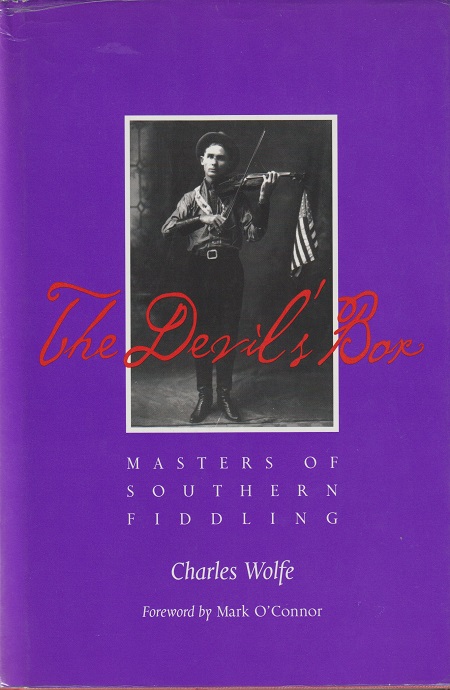
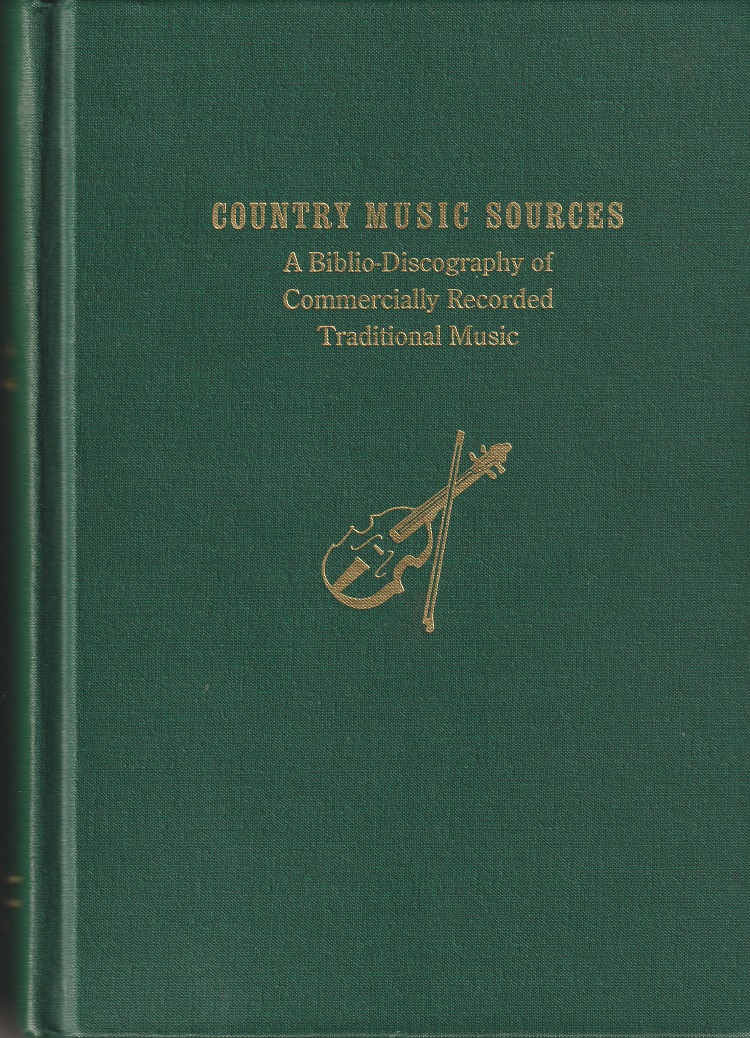
Then, just after my 50th birthday, about twenty years ago, I found myself in a position to do something to redress the balance. I put together three “mix-tape” home-burned CDs of Midwestern Fiddle Bands to share with my music buddies. Those first years of the 21st century were an appropriate time. I was deep into a couple of research and writing projects about Midwestern fiddling and vernacular music. Several other events also proved to be of critical importance:
1) Guthrie Meade’s magnum opus, Country Music Sources: A Biblio-Discography of Commercially Recorded Traditional Music, was published in 2002. I was fortunate enough to buy a discounted copy of this large reference book, and I immediately began to educate myself on the esoterica of Midwestern old-time music as it appeared in the veins of the emerging country music industry. I began with Meade’s fourth and last section, Instrumental Music, and compiled a spreadsheet of the earliest fiddlers and their oldest recorded performances.
2) Pre-Facebook social media enabled the formation of two online affinity communities: the FIDDLE-L email list serve and the USENET news group rec.music.country.old-time. Not only did these communities allow me to enter the tape-sharing networks of 78 collectors and field recorders, I made lasting friendships with like-minded enthusiasts from all over. It was the generosity at the heart of these communities that allowed me to hear for the first time many of the recordings whose existence I had discovered in the pages of Meade’s lifework.I modeled my CD compilations after the Document Records reissues of old-time country music–the 8000 series. Most of the 70 titles in that series were devoted to single artists or groups. Eight titles were anthologies, a half dozen of which were devoted to string bands or fiddle bands from a particular southern state: Mississippi, Georgia, Alabama, and Texas. All 70 albums in the series were subtitled Complete Recorded Works in Chronological Order, with white decoratively-framed covers featuring historical photos.
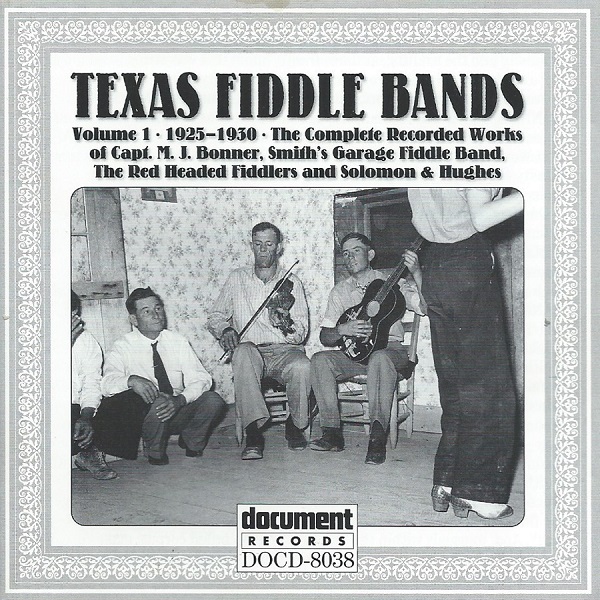
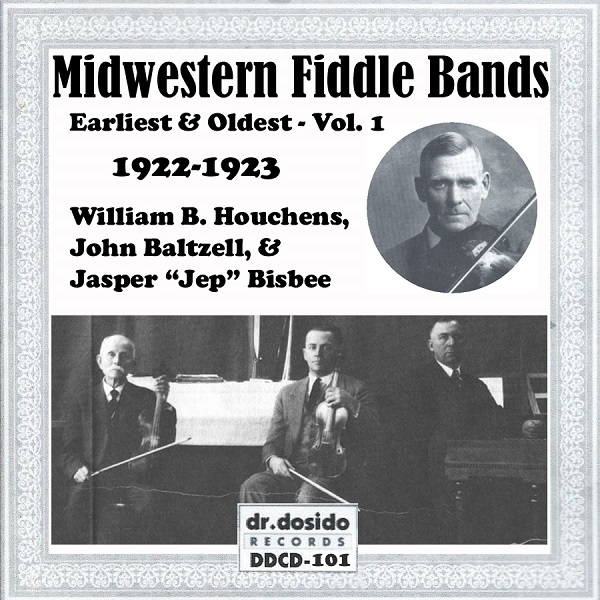
I selected one Document cover to use as a template for my series of three compilations of Midwestern Fiddle Bands. I replaced the Document catalog numbers with my own DDCD-1##, and compiled a discography in the manner found on the Document CD traycards or the back cover of the inserts. Realizing that I could not rightfully claim completeness, I initially subtitled my CDs “mostly complete and largely chronological.” I later settled on Earliest & Oldest for a subtitle. For liner notes on the artists, I borrowed from published sources or the genealogical reports Paul Gifford shared with me
This was an enjoyable creative effort, but it was a limited, non-commercial project. I burned about a dozen CD copies of the set–with covers, inserts and traycards–and distributed them to friends, especially to those who had helped me gather copies of the recordings. Several people suggested that I issue them commercially. But I did not possess the proper rights.
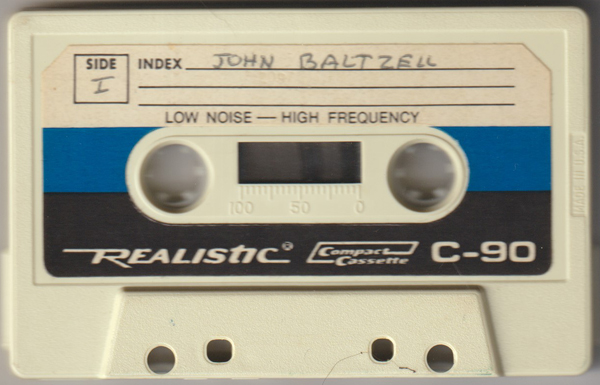
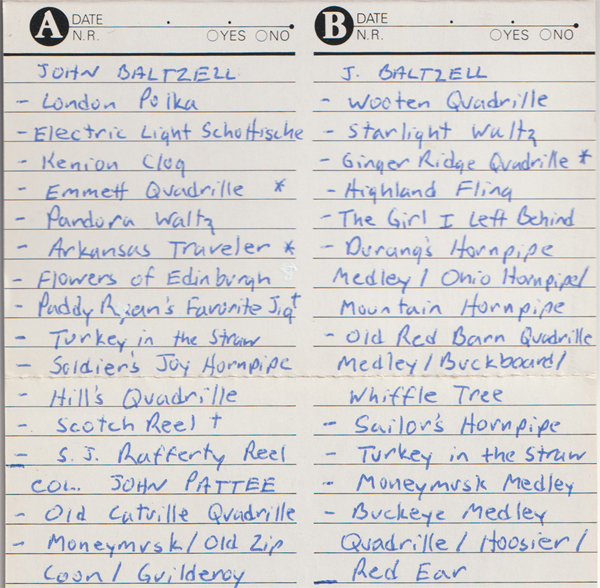
The seed for this whole project was planted nearly a half-century ago when, on two occasions, Paul Gifford, a good friend from my days in Detroit, dubbed for me several mix-tapes of 78s in his collection. The first one, dubbed in 1978, included John Baltzell and Jasper “Jep” Bisbee. A second tape made for me a few years later introduced me to the Tom Owens Barn Dance Trio and Tommy Dandurand, who recorded for the Gennett label in 1926 and 1927 when they were stars of the National Barn Dance on radio station WLS in Chicago.
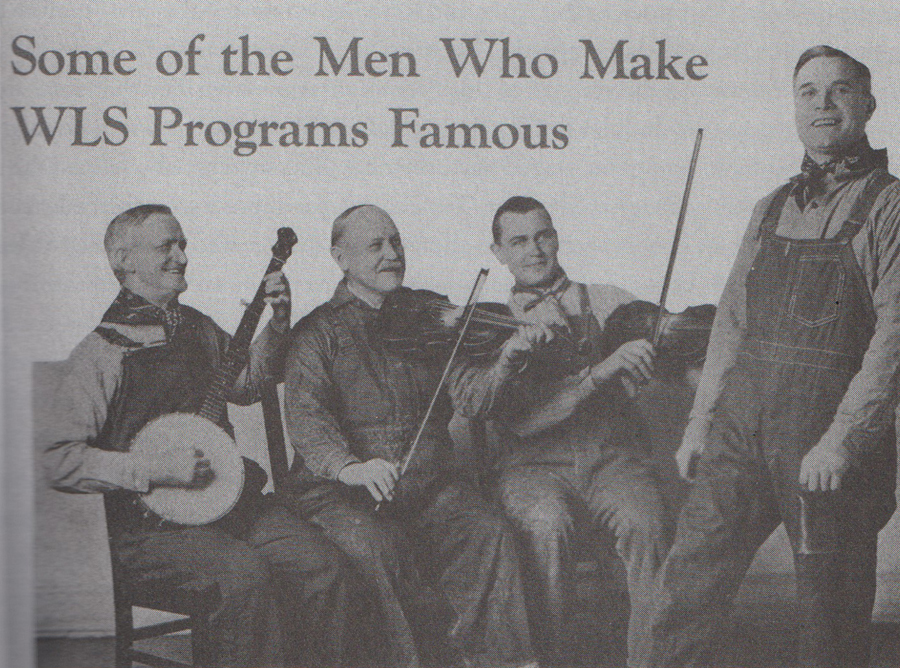
That was all decades ago. And though some of those early recordings have popped up in various nooks and crannies of the World Wide Web, including in a few published anthologies, nothing resembling my fanciful Midwestern Fiddle Bands box set has appeared. So now, a few years past my 70th birthday, I figured out how to post them myself on my own website, drdosido.net. I used the label Old 78s for this area of my research. Besides the three CDs of Midwestern Fiddle Bands, I eventually compiled playlists and discographical data for a full set of forty DrDosido CDs, including series devoted to Midwestern Ethnic Old-Time and to National Barn Dance Artists. My goal is to eventually post them all online (look under the Events menus on the drdosido.net homepage).
Just now, in the first months of 2024, I constructed an Earliest & Oldest webpage that contains all three volumes of the oldest and earliest Midwestern Fiddle Bands. Plus, I made a separate page for later–after 1927–Midwestern Old-Time. This latter page includes a volume 4 of Midwestern Fiddle Bands, but it starts off with a repost of the Indiana Fiddle Bands 1 album that I presented several years ago on DrDosido’s Blog to honor the bicentennial of Indiana statehood. I will be using this blog to post additional biographical sketches and stories of my encounters with history. I have one in the works now on William B. Houchens and another on an obscure band, Wings Rocky Mountain Ramblers, that I was able to learn about while working on a oral history research project for the Starr-Gennett Foundation.
None of this would be possible without the generosity of the old-time music and 78 collector communities. I deeply appreciate the music and friendship shared with me by Paul Gifford, Paul Wells, Jim Nelson, Kerry Blech, Bob Bovee, Joe Bussard, Frank Mare, and many others.
Enjoy,
Paul Tyler, PhD (aka DrDosido)
Excellent resources. Thanks for your generosity.
Paul Tyler you are so wonderful! You have shared a life’s work with so many musicians and people. It would take me forever to listen to everything you have put on this website. Thank you so much for your devotion and fine work! Christine